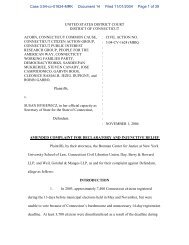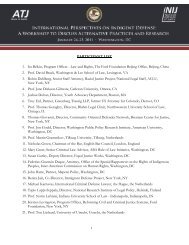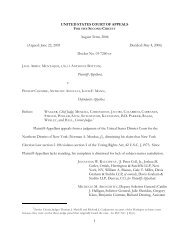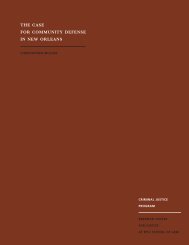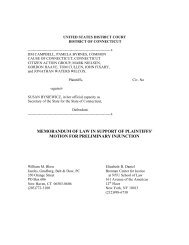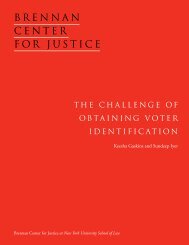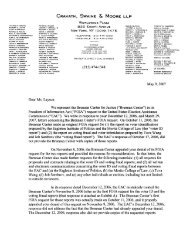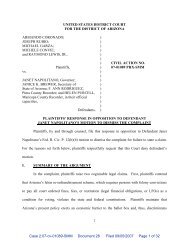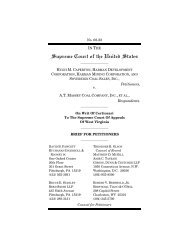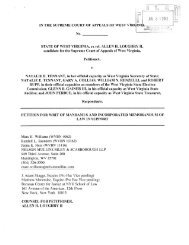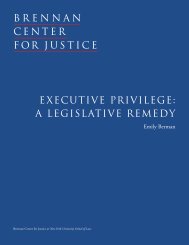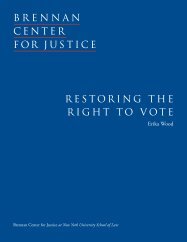THE NEW YORK STATE LEGISLATIVE PROCESS: AN ...
THE NEW YORK STATE LEGISLATIVE PROCESS: AN ...
THE NEW YORK STATE LEGISLATIVE PROCESS: AN ...
Create successful ePaper yourself
Turn your PDF publications into a flip-book with our unique Google optimized e-Paper software.
RECOMMENDATIONS FOR REFORM<br />
The reforms proposed here seek to make the New York State Legislature more<br />
faithful in its representation, more deliberative and effective in its exercise of legislative<br />
powers, more accessible and accountable to the voters, and more efficient<br />
in its legislative work.<br />
Significantly, the proposed reforms require only changes to each chamber’s rules,<br />
rather than legislation. For this reason, these reforms need not become the victim<br />
of the very legislative dysfunction they seek to repair. Each chamber may enact<br />
them separately, and the Governor need not be involved. Rules changes need not<br />
pass through a committee and thus will not be left to languish there. Most importantly,<br />
each chamber must vote to revise or maintain its existing rules every two<br />
years. For all these reasons, if reforms to the rules are not approved, it will only<br />
be because a majority of the members of a chamber expressly rejects them. The<br />
next regularly scheduled opportunity to approve such rules reforms will be in<br />
January of 2005, though a chamber could adopt such changes at any time before<br />
then.<br />
The proposed reforms to the rules of the Assembly and Senate are as follows:<br />
■■■BILL INTRODUCTION<br />
■ Each member shall be limited to introducing 20 bills in the Assembly and 30<br />
bills in the Senate in each session. 270<br />
■■■COMMITTEES<br />
■ All standing committees shall meet on a bi-weekly basis throughout the legislative<br />
session without exception. Attendance at such meetings shall be<br />
mandatory, except that members may be excused upon good cause and the<br />
specific reasons therefor shall be recorded and maintained as a public record.<br />
All meetings of standing committees shall be recorded by a stenographer or<br />
by other means and transcripts of said meetings shall be available as public<br />
records.<br />
■ Proxy voting shall be prohibited in all committees. A certification that no<br />
such voting has been used in committee votes in the legislative session shall<br />
be executed under oath by each committee chair at the close of each legislative<br />
session.<br />
■ No member shall be assigned to more than three committees during a<br />
legislative session.<br />
■ All bills reported to the legislative floor must be accompanied by a public<br />
committee report that contains, at a minimum, purposes of the bill, change<br />
53



